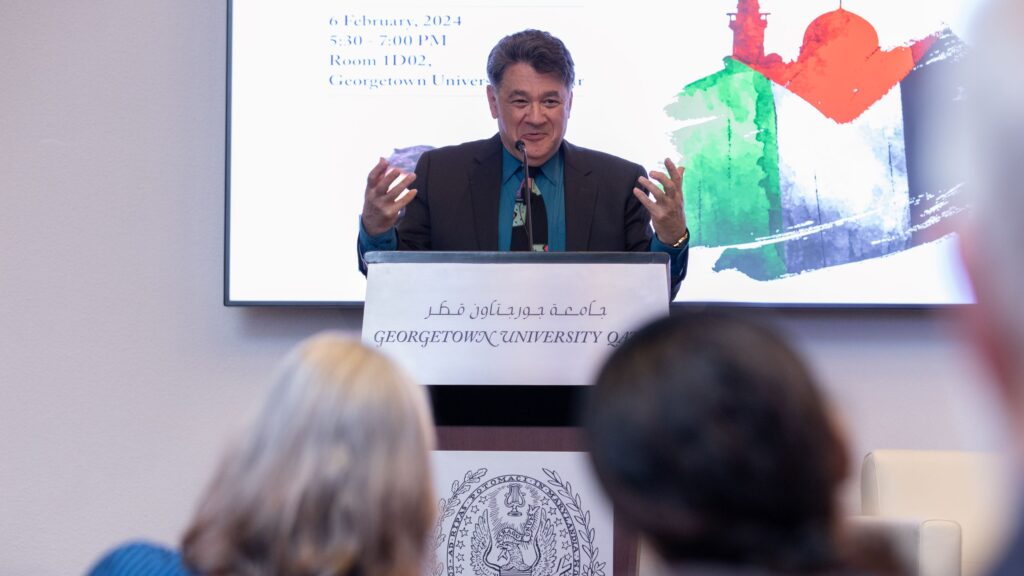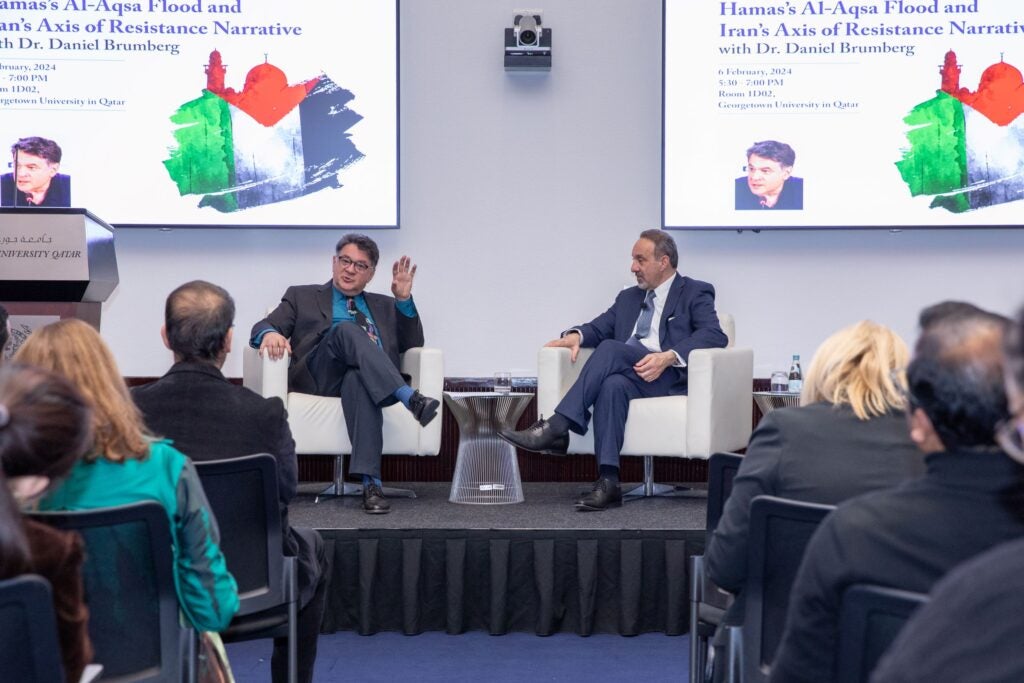Expert Daniel Brumberg Explores Iran’s “Axis of Resistance” Strategy

In a public talk at Georgetown University in Qatar (GU-Q), Middle East expert Dr. Daniel Brumberg shared his observations on evolving challenges facing Iran and its “axis of resistance” as it seeks to contain and control the dynamic of escalation that has followed October 7.
The author of Reinventing Khomeini, among other books, Dr. Brumberg serves as a Senior Advisor to the Democracy and Governance program at Georgetown University and a Senior Non-Resident Fellow at Arab Center Washington DC.

Moderating the event, Dr. Mehran Kamrava, Professor of Government at GU-Q and author of Righteous Politics: Power and Resilience in Iran (2023), introduced Dr. Brumberg as “one of the most astute observers of the Middle East.”
In his talk, Dr. Brumberg deconstructed a resistance strategy that increasingly requires Iran to balance its military, political, and diplomatic goals while maintaining internal stability as it sets the stage for leadership succession.
“The axis of resistance is essentially a balancing act, a strategy to reach a ‘sweet spot’ between multiple agendas and multiple goals, whose ultimate goal is regime survival,” he said.
Highlighting the complexity of this balance, Dr. Brumberg noted: “We have to recognize that the narrative of resistance is constantly changing and integrating new elements. It has a much wider global perspective and has been enlarged to include Russia and China,” adding that “China’s role in helping the birth and resumption of relations between Iran and Saudi Arabia is fundamental to the diplomatic process. So resistance also means diplomacy and bringing into the camp new allies.”
He further argued that the balancing act requires sustaining relationships with regional allies in a way that assures Iran that it can defend its military and economic interests while averting any risk of a full-scale war with the US or Israel.
A meaningful end to the war on Gaza, one that leads to a diplomatic process, is essential for the de-escalation of tensions with Iran, Dr. Brumberg stressed. “Only if there’s a ceasefire in Gaza can we hope for the escalation that’s occurring to stop and go back in the opposite direction.”
Following the lecture, Dr. Brumberg engaged in further interaction with the audience, part of an ongoing dialogue fostered during his week-long engagement with GU-Q. His visit, part of the Short-term DC Faculty Visitors program initiated by Dean Safwan Masri, included meeting with students and giving several lectures as part of the Faculty Seminar Series.